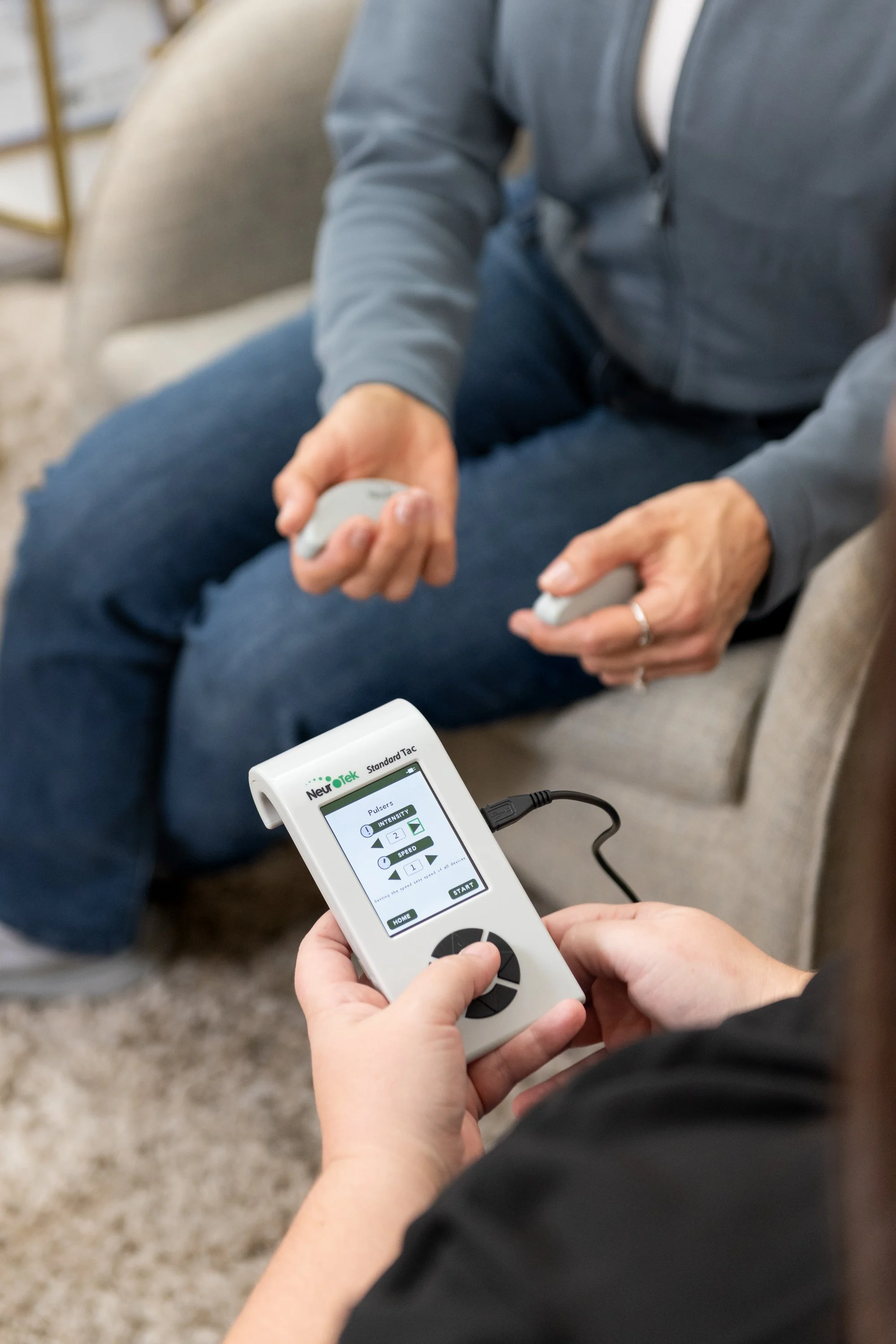
Reveal. Release. Reclaim.
What is EMDR Therapy?
A gentle, evidence-based way to help your brain heal what talk alone can’t
You’ve talked about it. You’ve journaled. You’ve tried to move forward — yet something in your body still reacts. Old patterns, emotions, or memories keep resurfacing even when you understand why they shouldn’t.
That’s because insight isn’t the same as release. EMDR helps the brain and nervous system process what’s been held for too long so healing can finally take root.
What Is EMDR?
EMDR (Eye Movement Desensitization and Reprocessing) is an evidence-based therapy that activates the brain’s natural healing system. It supports you in processing distressing memories so they feel less overwhelming in daily life.
According to EMDRIA, EMDR helps the brain “reprocess distressing life experiences that are causing current symptoms,” allowing integration and relief.
How EMDR Differs From Talk Therapy
Talk therapy produces insight. EMDR supports integration — mind, body, and nervous system.
You don’t have to retell your story in detail. Instead, bilateral stimulation (eye movements or tapping) helps the brain shift out of survival mode so your emotional responses finally begin to soften.
The result
Less reactivity
Fewer triggers
More emotional space
A sense of lightness and clarity many clients describe as surprising
What Sessions Feel Like
Krista creates a calm, steady environment so you never feel rushed or overwhelmed. Sessions include grounding, gentle guided processing, and a return to calm before closing. The pace stays aligned with your comfort and capacity.
What EMDR Can Help With
Trauma and PTSD
Anxiety
Depression shaped by past events
Grief
Relationship patterns
Childhood wounds
Emotional reactivity that feels “out of nowhere”
Why EMDR With Krista
Krista brings a deeply grounding presence, a whole-person lens, and a faith-informed sense of compassion. Her steady, connected style helps clients feel safe enough for healing to unfold — leading to meaningful, lasting change.
Is EMDR Right for You?
If you’re tired of coping and want true relief — not just more insight — EMDR may be the next step.
Reach out to schedule a consultation or first session and begin your path toward steadiness, self-compassion, and a life that feels more like your own again.

